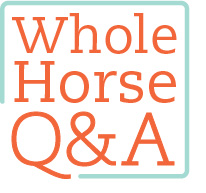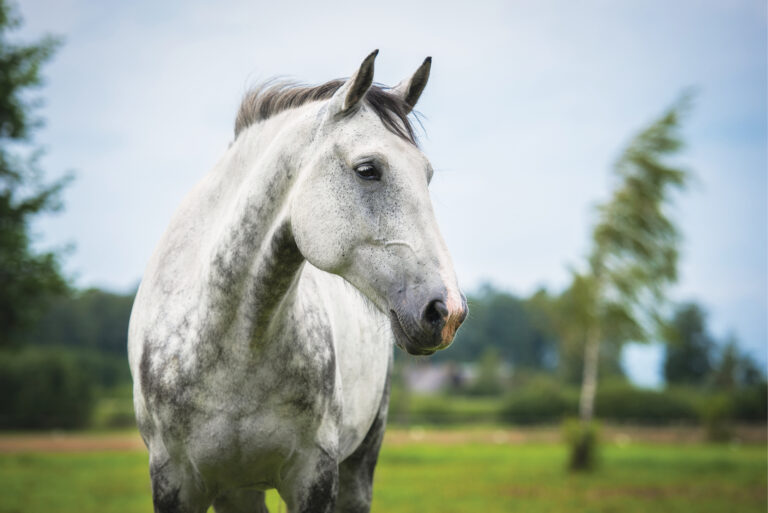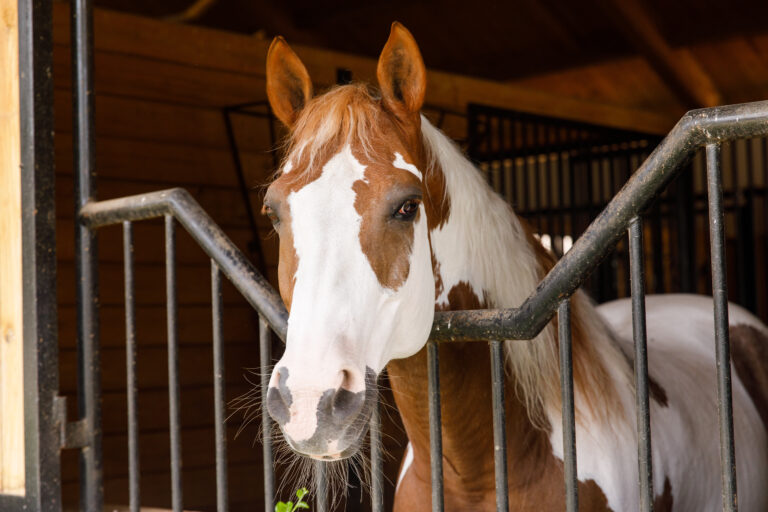Q A friend’s team-roping gelding appeared mildly colicky, but it turned out to be colitis. How does a vet know if it is colitis?

MARK WYATT, Kansas
A Horses have a unique digestive tract that relies on bacteria to break down the large amount of roughage they consume. Unlike cloven-hoofed animals, horses ferment feed at the hind end of their gut, the colon. When the colon becomes inflamed, the term is colitis. Colitis can occur when the normal bacterial population is disrupted and pathogenic bacteria proliferate, or when the colon’s blood supply is impaired and unable to support the colon’s absorptive and protective functions.
Colitis symptoms can vary from mild depression and lack of appetite to severe diarrhea and colicky behavior. A change in fecal consistency combined with a poor appetite is a common first sign and warrants a call to your veterinarian. Due to the colon’s length (30 feet) and the amount of water a horse needs to stay hydrated (about 12 gallons a day), dehydration occurs extremely quickly when the colon isn’t absorbing water. Humans and small companion animals often can weather a few days of diarrhea, but horses require early intervention, diagnosis, and hydration support.
Your veterinarian can determine whether your horse has colitis, starting with a physical examination. Many horses with colitis will have a fever, some mild depression, and loose manure or diarrhea. Blood work will often indicate a low white blood cell count as well as a drop in blood protein. A fecal PCR panel is also useful (see box).
Recent antibiotic use can predispose a horse to colitis. The antibiotic can kill the healthy bacteria, allowing pathogenic bacteria to grow. Usually, the benefits of antibiotic use outweigh the risks,` and your veterinarian will use judgement when prescribing one. A key practice is to discontinue an antibiotic and call your vet if your horse goes off feed or his manure changes.

Rarely, horses can have in their colon an inflammatory reaction to other medications, including NSAIDs (nonsteroidal anti-inflammatory drugs such as bute and Banamine) or gastric protectants (such as omeprazole). Like humans, horses can have individual intolerances to certain medications. Grain overload, toxic-plant ingestion, and sand accumulation are other potential causes of colitis. In 50 percent of cases, no underlying cause can be found.
Treatment outcome depends on the severity and cause of the colitis. Mild cases respond well to withdrawal of medication and attention to hydration plus restoring normal bacterial flora. More involved cases require continuous IV-fluid therapy, treatments to elevate plasma protein and, occasionally, antibiotics to prevent further infection of a damaged colon. It can take days to weeks for an inflamed colon lining to regenerate and regain normal function. Nursing care is essential during this healing period.
Even with intensive care, some horses will progress to circulatory shock from water loss, which can manifest as laminitis, venous blood clots, or even death. Take away: Identify the problem early and intervene with veterinary care before significant colon damage occurs.
CLAUDIA SONDER, DVM
Director, Center for Equine Health
University of California, Davis






